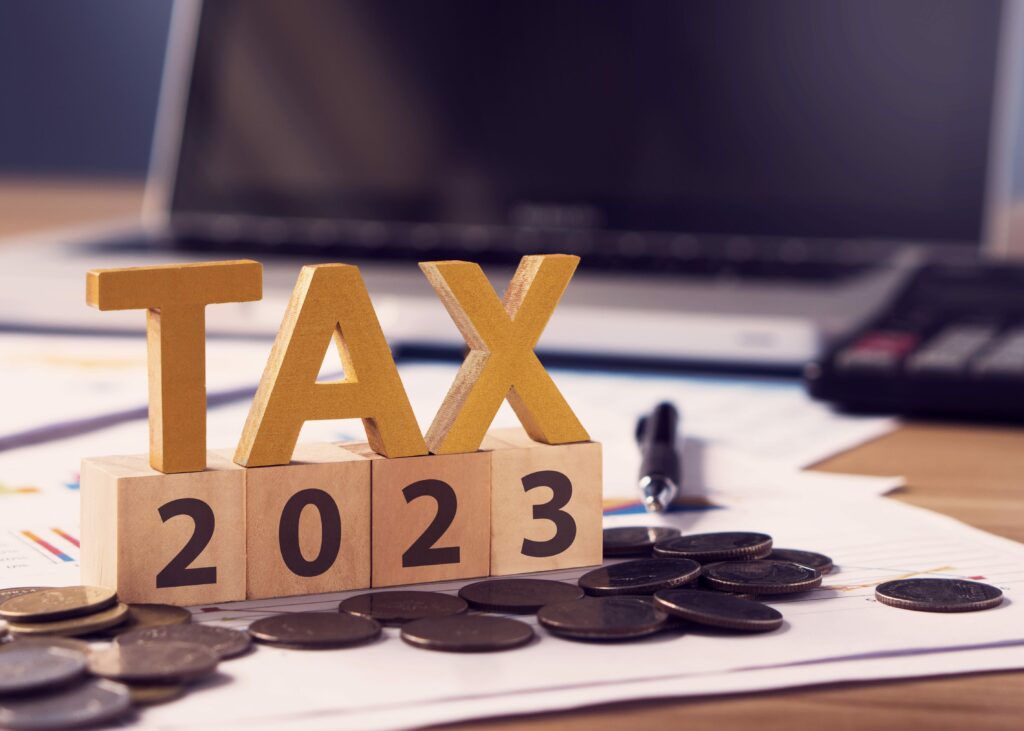Tax time in Australia can be a stressful period for both individuals and businesses. The thought of preparing financial records, keeping up to date with tax laws, and filing your tax returns can be overwhelming. However, with some careful planning and expert advice from the team here at Agilis CA, you can make tax season a breeze!
In this blog post, we’ll share our top 5 tips for tax time 2023, to help you prepare and make the most of the tax deductions available to you.

#1: Organise Your Financial Records
The first step in preparing for tax time is to organise your financial records. This means gathering all your receipts, invoices, and other relevant financial documents in one place. Using accounting software, like Xero or QuickBooks, can make this process easier by allowing you to track your expenses throughout the year. This not only makes it easier to file your tax return but can also help you identify opportunities to save money on taxes.
Read More: Choosing the Right Apps for Your Business – Using Xero
Keeping track of your financial records throughout the year also ensures that you don’t miss any important deadlines. For example, if you’re required to make quarterly tax payments, you’ll need to ensure you have the necessary funds available and file your tax return on time to avoid penalties.
Managing your financial records year-round is the easiest way to avoid the stresses of collating and compiling information at tax time. By preparing ahead of time, you can save yourself a lot of time and ensure that you have all the information you need at hand. Our experienced tax accountants can make this task even simpler for you!

#2: Stay Up to Date with Tax Law and Regulation Changes
Tax laws and regulations can change from year to year, and it’s important to stay informed of these changes. For example, the Australian Taxation Office recently announced a number of tax changes as part of the 2022-23 Budget. These changes include:
- The low and middle-income tax offset has been extended for another year, providing tax relief for individuals earning up to $126,000.
- The low-income tax offset has been increased, providing additional tax relief for individuals earning up to $66,000.
- The personal income tax rates and thresholds have been adjusted, with the top threshold increasing to $210,000.
- The instant asset write-off threshold has been increased to $150,000 for eligible businesses.
- The temporary full expensing measure has been extended for another year, allowing eligible businesses to deduct the full cost of eligible assets immediately.
Staying up to date with these changes can be challenging, especially for individuals and small businesses who may not have the resources to keep track of them. It’s also important to note that these changes may not apply to everyone, and there may be other changes that are relevant to your specific tax situation. It’s always a good idea to seek advice from an experienced tax professional who can help you navigate the complexities of the tax system and ensure that you’re meeting all your tax obligations.
This is where having an experienced team of accountants on hand, like ours at Agilis CA, can be incredibly useful. We keep up to date with all the latest tax law changes, so you don’t have to. We can provide you with expert advice and assistance to ensure you’re compliant with all tax requirements.

#3: Plan for and Know Your Applicable Deductions
One of the best ways to reduce your tax liability is to plan ahead for deductions. There are many deductions available to individuals and businesses, including work-related expenses, charitable donations, and investment expenses. Make sure you understand the deductions available to you and keep track of all eligible expenses throughout the year.
For example, if you work from home, you may be eligible to claim a deduction for home office expenses, such as internet and phone bills, electricity, and depreciation on your computer or other equipment. However, you’ll need to ensure you meet the ATO’s strict criteria for claiming home office expenses, which include keeping detailed records of your expenses and ensuring that your home office is used solely for work purposes.
Read More: Here’s How To Claim Working From Home Expenses, This Tax Season
Similarly, if you’re a business owner, you may be able to claim deductions for a range of expenses, including:
- Rent and utilities
- Advertising and marketing expenses
- Business travel expenses.
By planning ahead and keeping track of your eligible expenses throughout the year, you can ensure that you’re taking advantage of all available tax deductions and maximising your tax savings.

#4: Know Your Tax Obligations
If you own a business, it’s important to understand the tax implications of your business structure. Different structures, such as sole proprietorships, partnerships, and corporations, have different tax obligations and advantages.
For example, if you operate a sole proprietorship, you’ll report your business income and expenses on your personal tax return. This can be a simple and cost-effective way to run your business, but it also means that you’re personally liable for any debts or legal issues that arise.
If you operate a partnership, on the other hand, you’ll need to file a separate partnership tax return. Partnerships are often a good choice for businesses with multiple owners, as they offer flexibility and can be relatively easy to set up. However, partnerships also require careful planning and documentation to ensure that all partners are on the same page.
If you operate a corporation, you’ll need to file a separate corporate tax return. Corporations offer many advantages, such as limited liability and the ability to raise capital by selling shares. However, they also come with more complex tax obligations and administrative requirements.
Read More: Understanding The Basics of Business Taxes
For individuals, it’s important to be aware of the different tax deductions and returns available to you, such as the medical expenses tax offset or the low-income tax offset.
No matter what type of business structure you have or if you’re an individual trying to manage your taxes, it’s important to work with an experienced tax accountant who can help you navigate the tax implications and ensure that you’re meeting all your obligations.

#5: When in Doubt, Seek Professional Advice!
Preparing for tax time can be a daunting task, especially if you’re not familiar with the tax system or the latest tax laws and regulations. That’s why it’s always a good idea to seek professional advice from an experienced tax accountant.
At Agilis Chartered Accountants, our team of experts can help you navigate the complexities of the tax system and ensure that you’re meeting all your tax obligations. We can provide advice and assistance on a wide range of tax-related matters, including income tax, GST, capital gains tax, and much more.
Choose Agilis CA
At Agilis Chartered Accountants, we have extensive experience working with businesses of all sizes and structures. We can help you understand your tax obligations and develop a strategy that maximises your tax savings while minimising your risk.
In addition to our tax services, we also offer a wide range of other accounting and business advisory services, including financial reporting, cash flow management, and strategic business development planning. Our goal is to help you achieve your financial goals and grow your business, no matter what challenges you may face. So, if you own a business and need help preparing for tax time 2023, or if you have any other tax-related questions or concerns, please don’t hesitate to contact us. We’re here to help you succeed!

